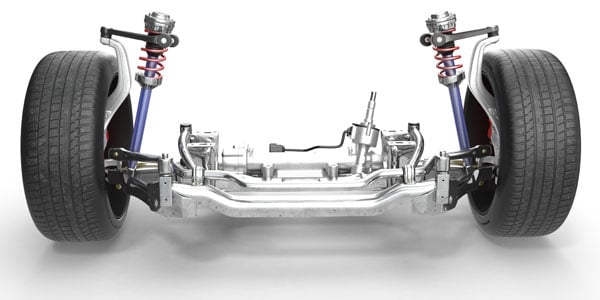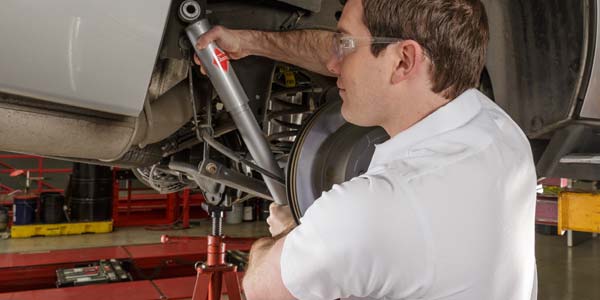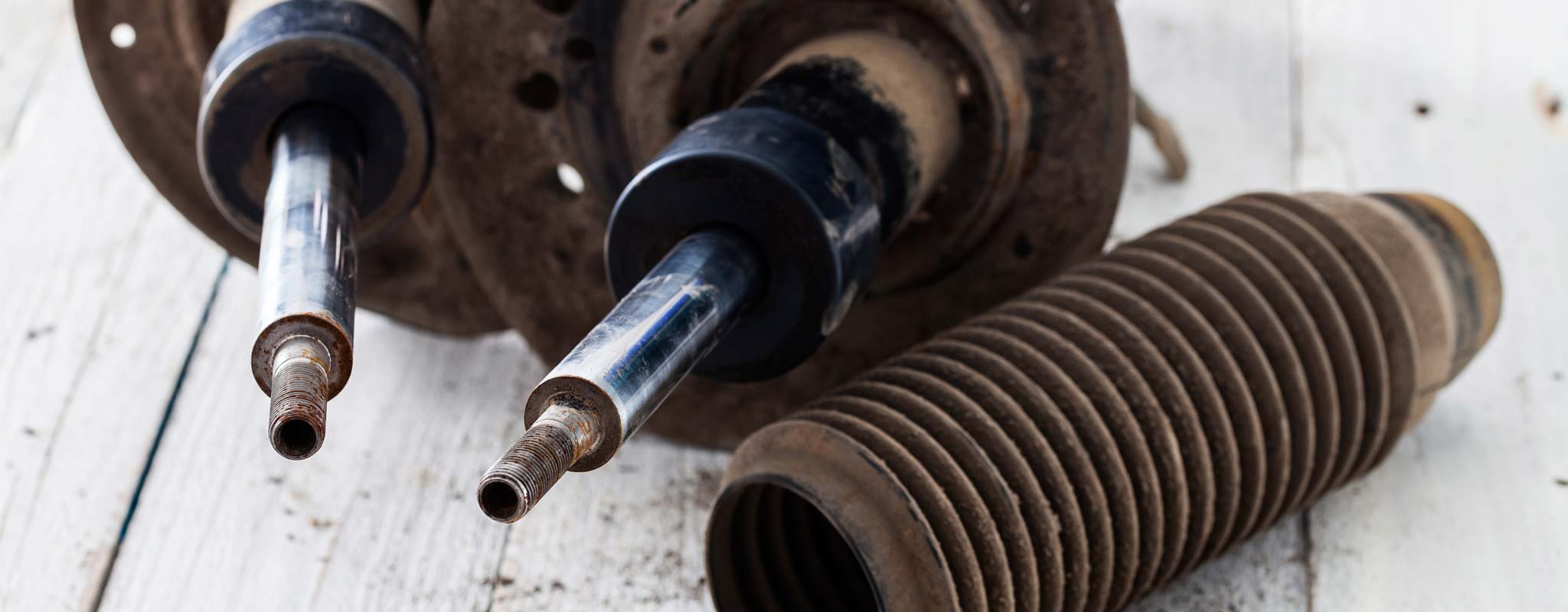Should I Replace My Shocks and Struts?
Why Your Suspension Matters
Every car and truck is suspended by a combination of springs, shocks, and struts. These parts, known as your suspension, add to the safety, performance, and longevity of your car or truck as they move up and down up to 1,900 times every mile. By the time you put 50,000 miles on your vehicle, those parts will have done their job 75-million times, working in tandem with your brakes, steering, suspension, tires (helping ensure your tread wears evenly), and all of the modern crash-avoidance systems found in new vehicles.
Les Schwab Quick Fact: Shocks and struts do not typically support your vehicle’s weight or any loads your truck might be carrying. The springs do that job. Worn out shocks and struts put more strain on the springs.
While parts of your suspension will wear out over time, it can be difficult to notice problems during your daily commute. Here’s how to spot problems with your suspension.
Test Your Shocks and Struts
The next time you’re out for a drive, pay attention to your vehicle’s handling as you answer the following questions.
-
When you go over a speed bump, does your vehicle bottom out or bounce more than it should?
-
When you go over a speed bump, does your vehicle bottom out or bounce more than it should?
-
Does your vehicle seem to float?
-
Do you see any unexpected cupping or uneven wear on tires (even after you’ve had the tires rotated)?
-
Do your suspension bushings seem to be cracked, peeling, or off center?
Other Signs of Suspension Issues
If you answer yes to any of the above, it could be time to get into your local Les Schwab. We’ll check your shocks and struts for free. See our Shock and Strut Service and Repair FAQ for more.
Schedule an Appointment
What you need to know

How to Tell If Your Shocks or Struts Are Bad
Worn shocks or struts can cause unsafe driving conditions. Learn how to diagnose whether you need to replace your vehicle’s shocks or struts.

Should I Get My Vehicle’s Suspension Checked?
Shocks and struts are key to your vehicle’s ride control. Find out why your vehicle’s suspension may need an inspection for a smoother and safer ride.

Shock and Strut Service and Repair FAQ
Get answers to your questions about shocks and struts. What do shocks and struts do? When do I need new shocks and struts?

